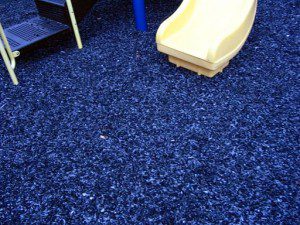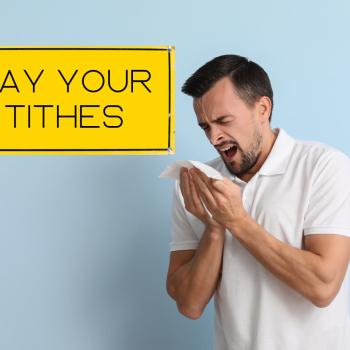 Justice Neil Gorsuch is now on the Supreme Court, and one of the first cases he will hear in his first week involves a Lutheran preschool: Trinity Lutheran Church of Columbia, Inc. v. Pauley.
Justice Neil Gorsuch is now on the Supreme Court, and one of the first cases he will hear in his first week involves a Lutheran preschool: Trinity Lutheran Church of Columbia, Inc. v. Pauley.
At issue is whether Trinity Lutheran Church of Columbia, Missouri, can take part in a state program that gives shredded tires to schools in order to cushion their school’s playgrounds.
The Missouri Constitution says that no state money whatsoever can go to a religious entity. And those shredded tires represent money.
At issue, though, is the heritage of the anti-Catholic Blaine Amendment in the 19th century, which is an obstacle to school choice programs.
I am sympathetic to the church and school. But do they have a leg to stand on? Doesn’t the Missouri constitution say what it says? If Justice Gorsuch rules against the church, that wouldn’t necessarily mean that he is weak on religious freedom, just that this case is pretty straightforward against the church’s position. What line of argument would you make in support of the church’s case?
See George Will’s take on the case.
From Supreme Court, with Gorsuch, set to hear church-state case – ABC News (AP):
Justice Neil Gorsuch’s first week on the Supreme Court bench features an important case about the separation of church and state that has its roots on a Midwestern church playground. The outcome could make it easier to use state money to pay for private, religious schooling in many states.
The justices on Wednesday will hear a Missouri church’s challenge to its exclusion from a state program that provides money to use ground-up tires to cushion playgrounds. Missouri is among roughly three dozen states with constitutions that explicitly prohibit using public money to aid a religious institution, an even higher wall separating government and religion than the U.S. Constitution erects.
Trinity Lutheran Church of Columbia, Missouri, says its exclusion is discrimination that violates its religious freedoms under the U.S. Constitution.
If the justices agree, “the decision could have implications far beyond scrap tires and playgrounds,” said Michael Bindas of the Institute for Justice, which is backing the church. “It has the potential to remove one of the last legal clouds hanging over school choice.”
That prospect worries groups of public school teachers and others who oppose vouchers and other forms of public aid for private schooling.
Adding to the intrigue is the long delay between when the Supreme Court agreed to hear Trinity Lutheran’s appeal, a month before Justice Antonin Scalia died in February 2016, and the argument. The span of more than 15 months suggests the justices were concerned they might divide 4-4. Indeed, the case wasn’t scheduled for argument until after President Donald Trump nominated Gorsuch for the seat.
[Keep reading. . .]
Photograph of rubber playground mulch by Phasmatisnox at English Wikipedia [GFDL (http://www.gnu.org/copyleft/fdl.html) or CC BY 3.0 (http://creativecommons.org/licenses/by/3.0)], via Wikimedia Commons
 Justice Neil Gorsuch is now on the Supreme Court, and one of the first cases he will hear in his first week involves a Lutheran preschool: Trinity Lutheran Church of Columbia, Inc. v. Pauley.
Justice Neil Gorsuch is now on the Supreme Court, and one of the first cases he will hear in his first week involves a Lutheran preschool: Trinity Lutheran Church of Columbia, Inc. v. Pauley.













